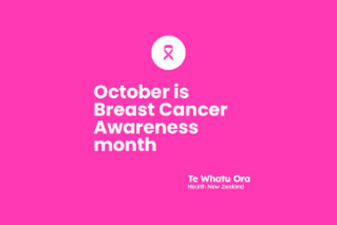October is Breast Cancer Awareness Month.
Oct 27, 2022October is Breast Cancer Awareness Month.
Every day, nine women in New Zealand are diagnosed with breast cancer, so it's likely that someone in your family or workplace will be diagnosed, has had breast cancer in the past, or is supporting someone with breast cancer.
The tireless work that so many doctors, nurses, sonographers, radiologists (and the list goes on) continue to do is life-changing and life-saving for so many patients.
Breast Cancer can affect woman at any age or stage of life, and it is important to understand the signs and symptoms of this disease.
If you have noticed any changes to your breasts recently, such as:
* A new lump or thickening
* Nipple Discharge
* Dimples, puckering or dents
* Or any other unusual changes…
…then now is the time to speak to your doctor who will refer you for a mammogram and an ultrasound.
The best way to detect any legions or other signs of breast cancer is with a 3D mammogram also known as breast tomosynthesis (TOMO). The breast is photographed at 1mm slices to produce a three-dimensional image which is very clear and accurate. This technology increases the invasive cancer detection rate by 60% compared to 2D mammography. It also reduces the need for unnecessary biopsies and is successful in distinguishing benign from malignant tumours.
Regular screening mammography is recommended for all women over 40 years of age. Plus there are other recommendations:
- Women from 40-50 years should have an annual mammogram
- Women over 50 years of age may continue to have annual mammography or opt to have two-yearly mammography. If you are unsure which applies to you, discuss this with your doctor.
- Women who have had a previous breast cancer should have an annual mammogram.
- Women who have a first degree relative (ie, their mother or a sister) who has had breast cancer should start having mammograms ten years in age before the age at which their relative was diagnosed.
The teams at Auckland Breast Centre and TRG Imaging are all specialists in mammography and breast imaging. Here are some FAQs that the team at ABC has answered. If you need further information, your GP will be able to help.
With continued research and early detection, we are well on the road to better outcomes for so many women and their whānau.




